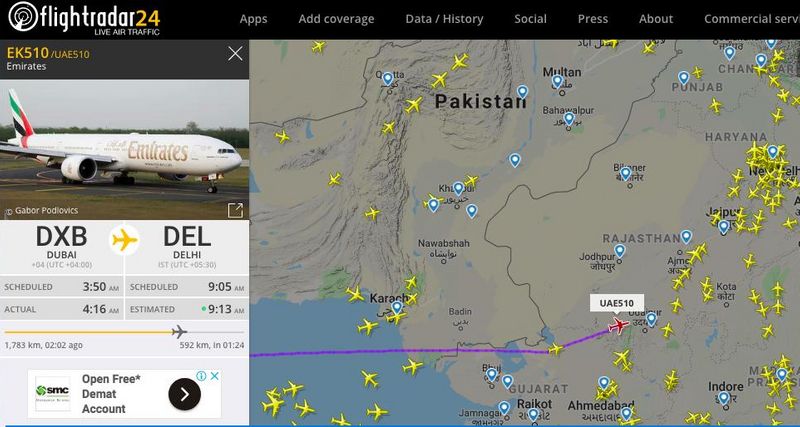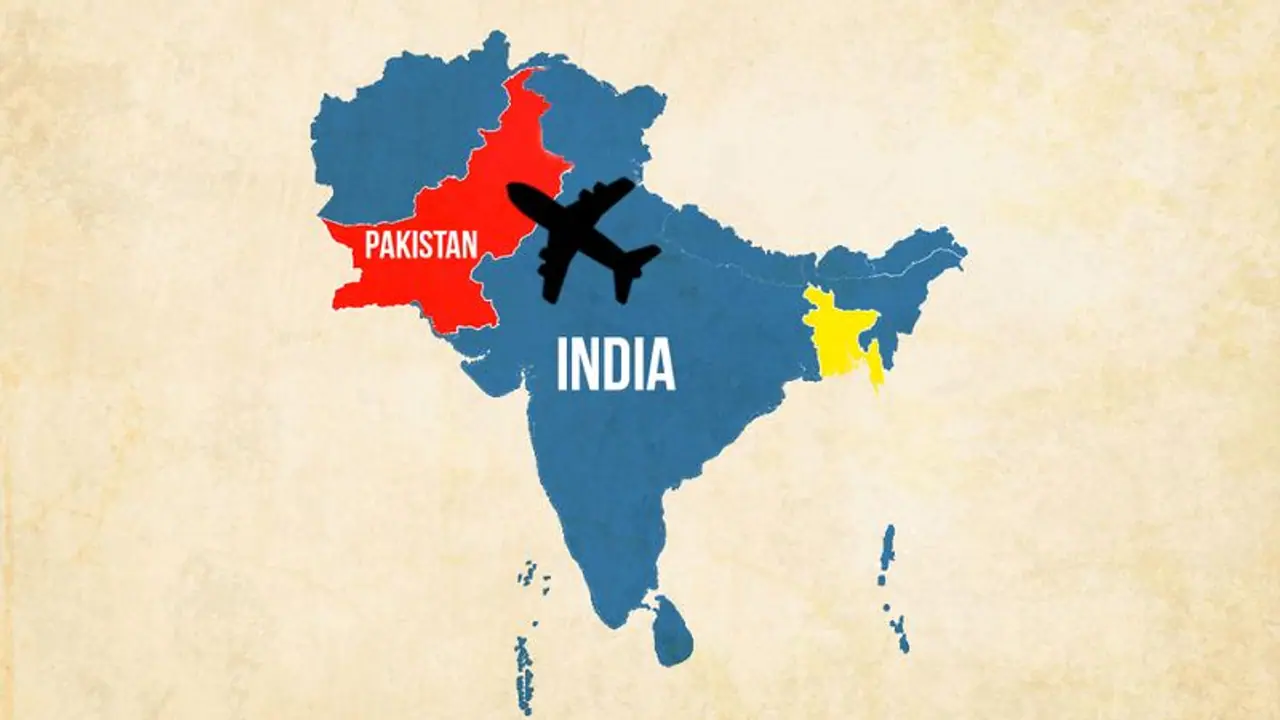There is no clarity on whether the ban has been officially uplifted and if so whether it has been done without any restrictions. A Twitter handle by the name of Pakistan Corporate Updates reported, for the moment ban on commercial flights have been lifted
New Delhi: After months of keeping its airspace shut and incurring losses worth hundreds of crores, Pakistan it seems has partially withdrawn its airspace ban.
Russian news channel RT has confirmed quoting Pakistani media that a flight originating from Abu Dhabi to reach New Delhi was the first flight to pass through Pakistan airspace in the last three months.
There is no clarity on whether the ban has been officially uplifted and if so whether it has been done without any restrictions. A Twitter handle by the name of Pakistan Corporate Updates reported, for the moment ban on commercial flights have been uplifted.
Still strict on entry from India?
RT, the Russian news channel reported, "While Pakistan has re-opened its airspace to outside traffic after shutting it down completely in February, it had remained strict on traffic entering from the eastern border through India". This means there will be greater control on flights entering Pakistan from India than flights entering from the Gulf or anywhere else. According to this report, the severely controlled access to Pakistan's airspace is only for commercial aircraft.

Move after India lifted the ban
While Pakistan had imposed a blanket ban, India imposed partial restrictions. But this week the Indian Air Force withdrew even that. The IAF has said that temporary restrictions on all air routes in the Indian airspace, imposed by it on February 27, have been removed.
The ban imposed after the Balakot strike by India deep inside Pakistan came soon after Narendra Modi came back to power for the second time as the Prime Minister of India.
On March 27, Pakistan opened its airspace for all flights except for New Delhi, Bangkok, and Kuala Lumpur. On May 30, Pakistan extended its airspace ban for flights to India till June 15.
The ban and how it broke Pakistan's back
The ban came as bilateral tension rose between India and Pakistan after India conducted operations in the early hours of February 26 when IAF warplanes crossed the de facto border in the disputed region of Kashmir and dropped bombs in the vicinity of the town of Balakot in Khyber Pakhtunkhwa province in Pakistan.
It was in response to the dastardly Pulwama attack that left more than 40 CRPF jawans dead. Both India and Pakistan shut its airspace but India withdrew it shortly with limited conditions applied.
But Pakistan continued its blanket ban for a longer time costing it deep.
In March, Pakistan's Samaa TV quoted Pakistan International Airlines spokesperson Mashud Tajwar saying, “We can’t give an off-hand estimate of the losses but yes the losses have been occurring for sure,” In thick of tension between the two nuclear-armed nations, www.propakistani.pk reported, "After the closure of airspace, PCAA’s financial loss is estimated to reach Rs. 1.5 Billion". PCAA is Pakistan Civil Aviation Authority, India's equivalent to the DGCA.
The website had also reported back in March, "PIA has suffered a loss of approximately 1 billion rupees – roughly 70 million Rupees every single day since the airspace closure".
Not that India didn't incur losses. But there hasn't been any unprecedented long-standing blanket ban on its skies as was in Pakistan. With reports of Pakistan finally opening up its skies, after three long months, the question is did the economic consideration weigh over them?
